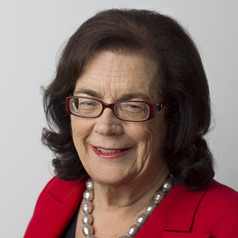By Michelle Grattan, University of Canberra
IT’S difficult to see how Tony Abbott can avoid a summer reshuffle and easy to believe he’s not relishing the prospect.
Few around the Coalition believe that Arthur Sinodinos will return to his assistant treasurer post after he performed unimpressively at the Independent Commission Against Corruption hearings, although ICAC’s assessment is not out until later in the year.
Abbott would like to retain Sinodinos but to keep him as assistant treasurer would surely not be politically practical, after it has become obvious that he did not have his eye on the financial balls in his company and party roles. Could Abbott have him in some other position? That would probably depend on precisely what ICAC says.
Some PMs look upon reshuffles as opportunities but Abbott does not appear to be one of them. He seems to dwell more on the risks. People who are dumped, excluded or otherwise disappointed can cause trouble. Even dropping as minor a player as Ian Macdonald from his frontbench when he came to power has caused Abbott grief. And whatever he does from now on, there will be muttering in the ranks.
It’s almost impossible to just deal with a single vacancy without having to make consequential changes. But let’s assume Abbott went for minimalism. Ambitious backbenchers, some of them with not just talent but experience, would be annoyed and maybe restless. They would fear that another opportunity could be a political eternity away. They’d be asking: how long does a Christian Porter, former treasurer of Western Australia, or a Kelly O’Dwyer, well-qualified former banker and staffer to then treasurer Peter Costello, have to wait?
And if Abbott did not take advantage of what effectively would be a forced reshuffle to get more women into the team, when – if ever – would he do that?
At the higher levels of the existing team, there is another sort of pressure. Immigration minister Scott Morrison is bursting out of his political skin.
Morrison has stopped the boats. This week he did a deal with Clive Palmer which, assuming he gets the necessary extra Senate votes, will restore temporary protection visas and see the processing of the 30,000 asylum seekers on Australian soil. He finished the week with a trip to Cambodia to sign an agreement for refugees from Nauru to go there.
As Morrison ticks off his KPIs he also dramatically shrinks his job. Anyway, it’s not a post any minister wants for long.
Morrison is doing a side shuffle without waiting for a reshuffle. He has moved himself into the anti-terrorism rhetorical space, doing many media appearances.
There’s widespread speculation that Morrison, a future leadership aspirant, is angling for a broad homeland security portfolio.
Whether it will come about is another matter, though certainly Attorney-General George Brandis, who’d stand to lose some of his territory, is said to be twitchy.
Like Morrison, Brandis had a win this week, when the first tranche of the anti-terrorism legislation cleared the Senate. But the gloss was somewhat rubbed off for the Attorney by TV pictures of Labor shenanigans in the Senate over his joining the rather quaint male-only Savage Club in Melbourne. The club was chaired by Robert Menzies from 1947 to 1962. Brandis’ membership nomination was seconded by Tom Harley, a moderate and a federal vice-president of the Liberal party, whom Abbott tried this year to have replaced, enlisting the aid of Christopher Pyne. Brandis backed Harley, who survived against the odds.
There isn’t a compelling case for a homeland security portfolio, despite the superficial logic. It would hardly be worth having it if ASIO were not brought under it. But it wouldn’t be desirable to take ASIO out of the Attorney-General’s portfolio. There are already serious issues of civil rights with the anti-terrorism legislation – that problem would be exacerbated if ASIO were under a more operational portfolio.
It is understood the Prime Minister’s Office believes that ASIO should stay with Attorney-General’s (as does ASIO). The more practical play is potentially around the Australian Federal Police, who currently come under the Justice Minister Michael Keenan. But again, the argument for bringing them into a homeland security ministry isn’t strong. While their counter-terrorism work is high profile, the largest part of their activities is dealing with organised crime.
Anyway, present arrangements in the anti-terrorism area seem to be working effectively. A major restructuring could cause more pain than gain.
If the homeland security ministry isn’t a goer, Abbott would be left with the interesting problem of a minister whose wings had outgrown his cage.
Abbott recently has been having meetings with his ministers to discuss how things are going. These reportedly have been one-on-ones – not even Abbott’s chief of staff Peta Credlin has been in them.
In a political party performance assessment goes both ways – the leader assesses the troops and the troops assess the leader. Assuming the reshuffle comes, how he handles it will be one of the KPIs by which Abbott will be judged.

Michelle Grattan does not work for, consult to, own shares in or receive funding from any company or organisation that would benefit from this article, and has no relevant affiliations.
This article was originally published on The Conversation.
Read the original article.
The post GRATTAN / A homeland security super ministry? Perhaps not as good an idea as it sounds appeared first on Canberra CityNews.
